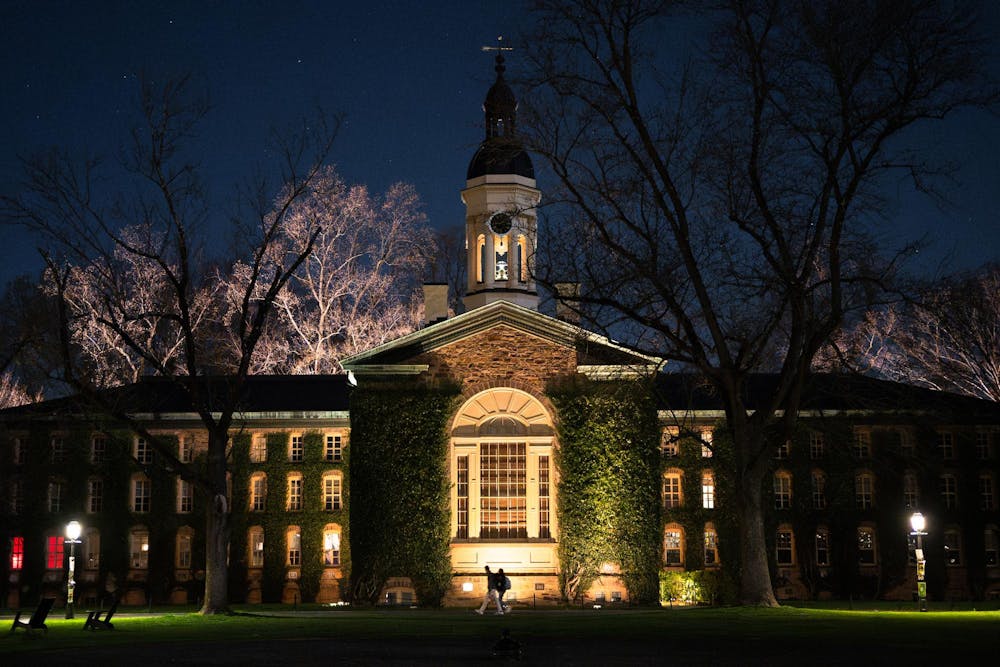The U.S. Department of Education launched an investigation into the University on Wednesday, April 3 regarding antisemitism on campus following a January complaint from Zachary Marschall, the editor-in-chief of the conservative website Campus Reform.
Princeton joins a number of prominent American universities, including Harvard and Yale, facing antisemitism investigations in recent months by the Department’s Office of Civil Rights (OCR) under Title VI of the Civil Rights Act of 1964, which prohibits discrimination on the basis of race or national origin in institutions receiving federal funding.
According to Campus Reform, the complaint cites chants from an Oct. 25 walkout in support of Palestine, including “Brick by brick, wall by wall, apartheid has got to fall” and those referencing the intifadas. Marschall did not respond to a request for comment by publication time. The Department of Education does not immediately make the full complaints public.
Marschall has been responsible for filings initiating at least a dozen Title VI investigations, including at Brown and Northwestern. Northwestern’s complaint was received by the OCR on the same day as that against Princeton. A recent profile in the Jewish Telegraphic Agency called Marschall “the most prolific filer of antisemitism complaints filed under Title VI of the 1964 Civil Rights Act since Oct. 7.”
“Based on our familiarity with events on our campus and other information available to us, we are confident we are in full compliance with the requirements of Title VI,” University Spokesperson Michael Hotchkiss wrote in a statement to The Daily Princetonian. “Based on the complainant’s published description of the complaint, we know that he is not a member of the University community and that his complaint appears to be premised on chants at protests.”
Multiple Jewish community members, including students and staff, told the ‘Prince’ that while antisemitic and anti-Zionist rhetoric had been present, it was not a campus-wide issue.
“There has been rhetoric on Princeton’s campus, as on many campuses, that has been deeply disturbing to some in the Jewish community, who feel that such rhetoric could create a hostile environment to Jewish people who support Israel’s right to exist,” Center for Jewish Life (CJL) Executive Director Rabbi Gil Steinlauf ’91 wrote to the ‘Prince.’ “My read on the campus climate at Princeton, however, is that such a climate of hostility has not taken over the campus in the way it has at other universities … A majority of Jewish students have reported to me that they do not feel that Princeton is an antisemitic place.”
Steinlauf told the ‘Prince’ that Marschall did not contact him in relation to the complaint.

Rabbi Eitan Webb, one of the directors of Princeton’s Chabad House, highlighted the University’s prohibition on amplified sound during protests and changes to policies for no-contact orders as examples of University action to “foster a safe and healthy environment.” But, he said, there was also more work to be done.
“Although administrations can signal with policies, and they must, students also have power to set the tone for a campus,” he wrote, referencing Chabad’s spring break trip to Israel, where students visited sites from Hamas’ Oct. 7 attacks and met with Israeli president Isaac Hertzog.
“None of the pro-Palestinian protests that have occurred on campus have threatened the safety of Jewish students,” Emanuelle Sippy ’25 told the ‘Prince’ on behalf of the Alliance of Jewish Progressives (AJP). “These efforts [by Marschall] are rooted in a misguided and problematic conflation of anti-Zionism and antisemitism, designed to silence students and faculty members for their political beliefs.”
“We have observed that the University has applied its commitment to free speech and academic freedom consistently across the political spectrum and has investigated incidents of bias and harassment against Jewish students judiciously,” Sippy noted.

In a statement to the ‘Prince,’ Stephen Bartell ’25, the president of the CJL student board, called the University a “valuable partner” in responding to individual antisemitic incidents, as well as antisemitism broadly.
“Even with demonstrations and protests that can be really heated by nature, I would say that the vast majority of Jewish students feel safe and comfortable being loudly and proudly Jewish as they exist in their everyday lives on campus,” he wrote.
Miriam Waldvogel is an associate News editor and the Investigations Editor for the ‘Prince.’ She is from Stockton, Calif. and often covers campus activism and University accountability.
Please send any corrections to corrections[at]dailyprincetonian.com.








